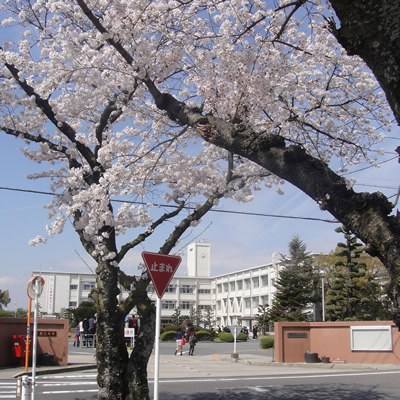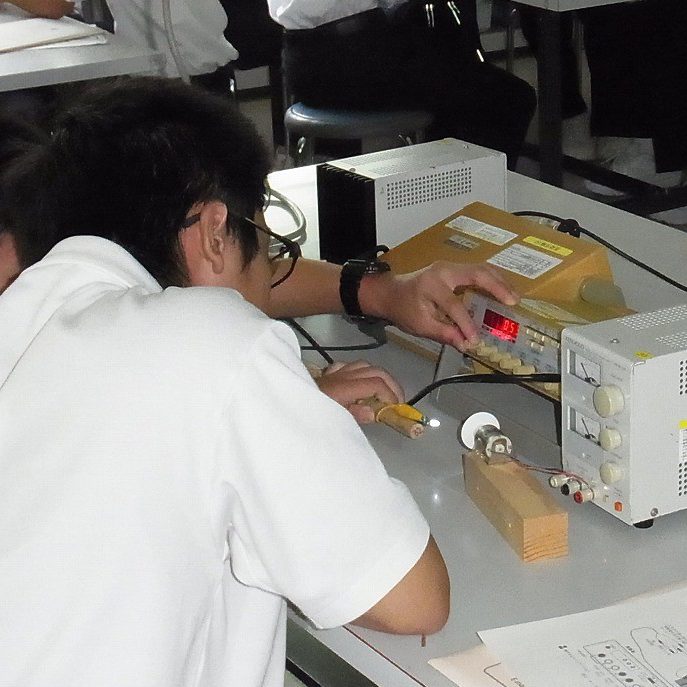Outline of the Department of Civil Engineering
Until now, large-scale projects such as expressways, international airports, bullet trains, and dams that were planned and built to ensure the convenience and comfort of our lives have destroyed the lush land and nature, and have disappeared historical and cultural heritage. Recently, the conservation of the natural environment, the protection of ecosystems, and the preservation of cultural heritage on a global scale have been reaffirmed.
In addition to construction techniques for the creation of rich and comfortable living spaces, the Department of Civil Engineeringe aims to newly educate environmental conservation and sustainable development technologies in order to preserve irreplaceable assets for humankind, such as the natural environment and cultural historical heritage, for the future. Courses in of the Department of Civil Engineeringe are divided into five categories: basic subjects, common specialized subjects, urban construction subjects, environmental subjects, and others. In the basic subjects, students learn applied mathematics and information processing as subjects related to science and mathematics and computers necessary for studying specialized subjects, and in the common specialized subjects, students learn surveying and structural mechanics, which are the basics for studying applied specialized subjects. In urban construction courses, students study construction management plans and urban planning related to urban planning and construction technology, and in environmental subjects, they study environmental engineering and environmental assessment related to environmental problems and environmental conservation technologies. Furthermore, based on the academic skills acquired, students acquire environmental conservation and sustainable development technologies through experimental training and graduation research. In addition, in order to facilitate the adaptation to the age of technological innovation, we aim to develop engineers who can adapt to the information society by incorporating plenty of computer-related courses.
It suits people like this
- People who like nature
- People who want to build a city
- People who are interested in disaster prevention
- Those who aspire to become civil servants
- People who want to make something big
What you’ll learn
| 1st grade | Information Literacy, Basic Seminar in Civil Engineering, Principles of Enviromental Engineering, Disaster Prevention Literacy,Construction Materials Ⅰ, Engineering Surveying Ⅰ, Exercise & Field Work in Engineering Surveying Ⅰ |
|---|---|
| 2nd grade | Exercise & Field Work in Engineering Surveying II, Basic Design & Draftsmanship for Civil Engineering, Construction Materials II, Engineering Surveying II, Introduction to Urban Planning, Structural MechanicsⅠ, Global Environmental Science, Reinforced Concrete Structure Ⅰ |
| 3rd grade | Applied Physics, Soil Mechanics Ⅰ, Hydraulics Ⅰ, Structural Mechanics II, Physics III, Reinforced Concrete Structure II, Experiments in Civil Engineering Ⅰ, Water Environmental Engineering, Project DesignⅠ |
| 4th grade | Urban Planning, Environmental & Sanitary Engineering, Experiments in Civil Engineering II, Analysis, Structural Mechanics III, Soil Mechanics II, Hydraulics II, Civil Engineering Design Theory, Project Design II, Information Processing Theory, Statistics, Planning of Civil Engineering, Advanced Civil Engineering, Off-Campus Training |
| 5th grade | Reinforced Concrete Structure III, Transportation Planning, River Engineering, Steel Structure, Design & Draftsmanship for Civil Engineering, Remote Sensing, Infrastructure Construction, Graduation Study |
Obtainable examination qualifications
- Registered Surveyor
- The 1st and 2nd Class Civil Engineering Works Execution Managing Engineer
- Chief Concrete Engineer
Where to find employment and go to school
![]()
![]()
⇑Employment Opportunities⇑ ⇑Educational Opportunities⇑















